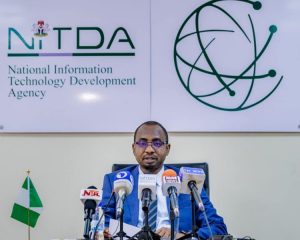Nigeria can generate 2trn from digital the economy in 4 years– Opeke

The Chief Executive Officer of MainOne Cable, a communications services company, Ms Funke Opeke, has reiterated the need for the Federal Government to develop a comprehensive Information and Communications Technology (ICT) strategy, saying the digital economy can pipe at least two trillion naira into Nigeria’s economy in the next four years.
Opeke stressed the need for the Federal Government to remove stumbling blocks that stymie infrastructure expansion like abominable taxes and regulations that negatively affect the job creation potentials of digital transformation.
The MainOne CEO, who was the keynote speaker at the recently held eNigeria conference organised by the Nigerian Information Technology Development Agency(NITDA) in Abuja, admonished that Nigeria should put in place policies that will ensure would make young technological innovation companies can survive, noting that the government must ensure that global players in the country domesticate technology so that more jobs are created and to ensure Nigerians do not end up as consumers of imported technological products
In his presentation, the Honourable Minister of Communications and Digital Economy, Dr Isa Pantami stated that about 300 Nigerian Postal Service (NIPOST) structures in the country will be transferred to facility management entities for reconstruction and use to generate revenue for the government.
Pantami also opined that the Ministry of Communications and Digital Economy was in partnership with Massachusetts Institute of Technology on the Entrepreneurship Accelerated Program, adding that the synergy between the Ministry and NCC led to the deactivation or proper registration of about 9 million invalidly registered SIM cards, many of which were used to undermine the nation’s security.
Meanwhile, the World Bank Group, in its first Nigeria Digital Economy Diagnostic a report launched last week reveals that although Nigeria is the largest mobile market in sub-Saharan Africa with strong mobile broadband infrastructure and a vibrant digital entrepreneurial ecosystem, the lack of infrastructure and connectivity in the country’s rural areas is a key challenge. The report also reveals that the country has made several positive developments in the digital space including high-speed Internet via five underwater international links, which has significantly reduced constraints in terms of international bandwidth usage and prices, as well as boosting network capacity.









